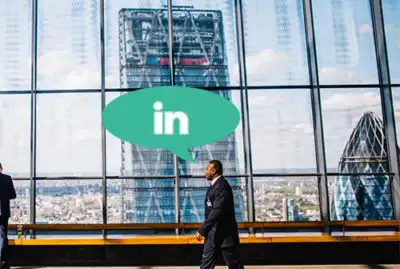It’s that time of year, whether you like it or not; this coming weekend stores around the world will be filled with crowds looking for a bargain. Black Friday is typically known for its big and crazy sales, specifically for the B2C market. It seems that everyone bar B2B brands are excited about the revenue that Black Friday is going to generate. Should business-to-business marketers buck the trend or is staying away from the event but actually the best decision?
B2B companies could see a jump in revenues during the holiday sales frenzy. Chances are, they would be one of the few companies in their market offering a sale to other businesses. The first B2B provider to offer a Black Friday discount in any market will have a competitive advantage, and by the time competitors realise, it will be too late for this year .
Flixel a B2B company that creates apps, was able to achieve 99% revenue growth despite a 30% discount during Black Friday, using a mix of targeted social ads and direct email marketing.
B2B brands can change the way they market Black Friday deals by focusing on offers such as free consultations. This would increase their lead volumes whilst retaining higher profit margins, as well as pushing passive prospects who are on the fence to make a decision.
What customers expect on Black Friday
Providers should keep in mind that consumers expect big discounts during Black Friday and Cyber Monday. Most B2B businesses aren’t geared to offer services or products with prices discounted over 30%.
Black Friday has always created the fear of loss effect – consumers understand they have a very limited amount of time to buy all the products they want before the price increases. The same principle can be applied to certain B2B products, but not all. Customers who are already close to making a decision about buying a B2B product/service may be swayed by a limited-time offer. B2B products/services that require signing a contract or have a higher cost are less likely to be an impulse purchase. Giving a price-based incentive for such an item would not normally push customers to make a rash decision, but could end up lowering prices for customers who were anyway going to buy at the higher price point.
Business owners should remember that giving existing customers a discount is great for loyalty, but not the purpose of a Black Friday sale. The aim here should be to generate income a brand would not have normally received at any other time of year. B2B brands are at a greater risk of driving purchases from customers who have a premeditated purchase in mind – a customer who would have brought the product/service at full price regardless of the Black Friday special offer.
Questions to ask before deciding on a promo
For B2B brands, the decision to offer a discount over the shopping season eventually boils down to the type of product/service on offer. The less commitment they require, the greater the discount, the more likely they are to sell. When deciding on a promotion consider the following:
- Is the brand gaining new business/awareness?
- What types of products/services would be discounted?
- Does discounting the product and advertising the offer still maintain a suitable profit margin for the business?
- Would the discounted product/service ever be bought on impulse or does it always require more thought and consideration?
- Could a promo cannibalise traffic from organic search?
B2B brands should focus their sales typically on products that cost less than £500, since these are more likely to be impulse purchase. If your answer to the above questions is no, chances are you should sit this one out.










